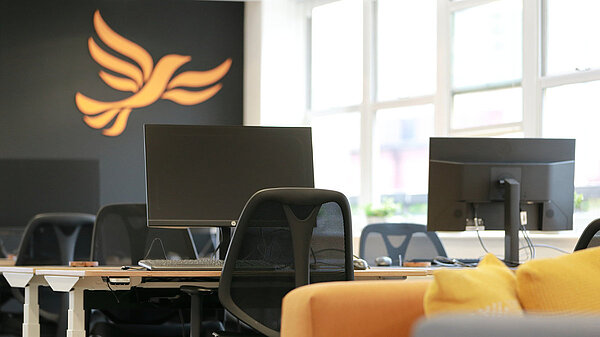25,000 operations cancelled twice or more in 2022 as backlog soars
EMBARGO: 00:01 Monday 25th September
-
Some patients have the same operation cancelled 13 times as backlog soars
-
Worst offending trusts have numbers of thousands of operations cancelled twice
-
Liberal Democrats demand urgent action to get the scandal of cancelled operations under control
The number of hospital operations cancelled twice or more surged to over 25,000 in 2022, an investigation by the LiberalDemocrats have revealed.
That is up 18% from the 21,477 operations cancelled twice or more the previous year.
The figures were obtained by the Liberal Democrats through Freedom of Information requests, with data provided by 78 of the 124 hospital trusts in England.
Some of the worst hit trusts include Mid and South Essex, which cancelled over 4,000 operations twice or more in 2022, and Portsmouth with over 2,500. In total, a staggering 112,000 operations have been cancelled twice or more in the past five years.
The figures also reveal that some patients have seen the same operation cancelled up to 13 times over the past five years. Portsmouth is also at the top of the cancellation list for individual cases with one patient suffering the indignity of having their operation cancelled 13 times in 2019. This was followed by Mid and South Essex with one patient whose operation was cancelled 11 times, and North Midlands with one patient having 10 cancellations for a single operation. In total, 20 trusts had one individual patient who had faced five or more cancellations since 2018.
The Liberal Democrats said the “harrowing statistics” show the need for an urgent rescue plan to reduce the number of cancelled operations and the damage done to people’s lives and the economy by being stuck on NHS waiting lists. This would include giving people the option to have surgeries in hospitals further away, providing an advice centre for patients ahead of their operation, and increasing surge pay for NHS staff for surgeries over weekends.
The latest figures show the number of people economically inactive because of long-term sickness has risen to over 2.5 million people, an increase of over 400,000 since 2019. A previous survey by the ONS suggested around 140,000 people have gone on long-term sick leave as a result of waiting for NHS treatment.
Liberal Democrat Leader Ed Davey said:
“At the heart of each of these harrowing statistics is someone waiting in pain for the treatment they need after having their operation cancelled yet again.
“Rishi Sunak promised to bring NHS waiting lists down, instead people are being let down after years of wilful neglect of our local health services under the Conservatives.
“It is a scandal that patients are being so catastrophically let down, with some seeing their operation cancelled ten times or more.
“This is not only damaging people’s lives, it is damaging our economy as people are left in limbo unable to return to work. The LiberalDemocrats are clear that you cannot fix the economy without fixing the crisis in the NHS and care. We want to see urgent action to reduce the number of cancelled operations, cut NHS waiting lists and help people recover and live healthy, productive lives again.”
ENDS
Notes to Editor:
The breakdown of FOI requests by NHS Trust can be found here.
ONS figures on rising ill-health and economic inactivity because of long-term sickness are available here.
The Liberal Democrats have set out a plan to cut NHS waiting lists and reduce the number of patients seeing their operations cancelled:
-
End the postcode lottery of queue lengths: Most people are referred to a specific hospital, often near where they live. Pooling these different waiting lists for individual hospitals by region would give people the option of faster care if it is available somewhere nearby, or even further afield if the patient is willing to travel. It would give patients choice and flexibility.
-
Preoperative patient advice centre: Planned surgery or tests are often cancelled or missed entirely for easily avoidable reasons, such as a patient not being properly prepared or medically fit for an operation. We would establish an advice centre that would offer personalised pre-operative advice the day before a patient’s test or treatment, to help ensure everyone is ready for their scheduled surgery.
-
Increased pay for weekend sessions: We would introduce surge pay for NHS staff, funded by central government, for weekend elective care. Most elective surgery is performed on weekdays but by encouraging and paying doctors and nurses extra for weekend work, and allowing them to focus solely on one type of procedure, waiting times can be reduced and surgery made more efficient. One NHS consultant described one trial of this approach “like a Formula 1 pit stop crew where you have people who are all well trained and work together to do something very efficiently and safely”. This should however not be seen as a substitute for a fair increase in pay, which striking NHS staff are currently fighting the Government for.
Original Freedom of Information request can be found below:
-
Please can you provide figures on the total number of patients who have had their operation cancelled for a second time. I would like these figures broken down by year for each of the past five years: 2022, 2021, 2020, 2019, 2018.
-
For context, I am looking for incidents where the surgery was cancelled for non-clinical reasons (i.e. staff shortages, equipment problems, lack of theatre capacity) and also not at the request of the patient.
-
In addition, please can you provide the largest number of times that a single patient has had their operation cancelled for non-clinical reasons, over the past five years. Please could you name the operation in question (e.g. hip replacement), and the year that the last cancellation took place (e.g. 2022).

